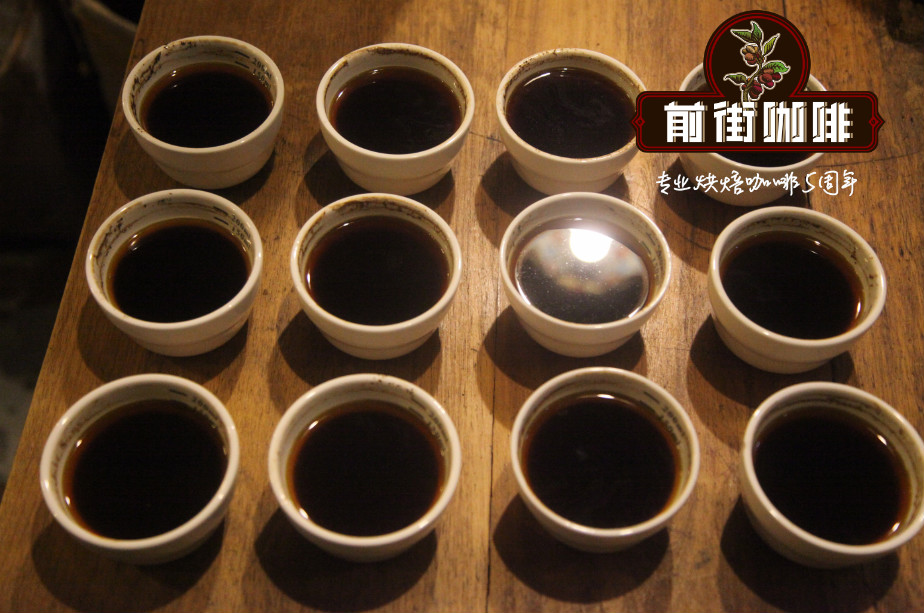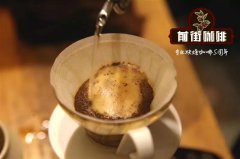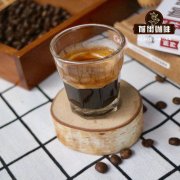What is the COE Excellence Cup? How to participate in the COE Coffee Cup Test

Professional coffee knowledge exchange more coffee bean information please follow the coffee workshop (Wechat official account cafe_style)
Cup Of Excellent (COE), a competition similar to Taiwan tea or French wine, is an annual coffee competition held in many coffee-producing countries to identify high-quality coffee, organized by the Alliance for Coffee Excellence Coffee Alliance (ACE). The first match of the Cup of Excellence was held in 1999, and in 2013, the Cup of Excellence was held in Brazil, El Salvador, Costa Rica, Nicaragua, Guatemala, Honduras, Mexico, Rwanda, Burundi, Colombia and Bolivia.
Coffee bureaus of various countries, as members of ACE, first hold domestic coffee competitions on their own. Farmers first hand in a certain amount of coffee to participate in the competition. Each coffee must undergo at least five cup tests. The evaluation criteria include eight items, such as cleanliness, sweetness, acidity, taste, flavor, aftertaste, balance and overall performance. Only those with a total score of more than 84 can be recognized as COE coffee beans. In the scoring process, as long as a referee has the slightest doubt about the quality of the coffee, the coffee will be kicked out of the game, and the final champion will be auctioned publicly on the Internet and will be able to get a sky-high price.
The composition and purpose of COE
About nine countries have joined the organization, including Guatemala, El Salvador, Nicaragua, Honduras in Central America, Brazil, Colombia, Bolivia, and Rwanda in Africa. These countries do not propose bean contestants every year. For example, Bolivia and Costa Rica did not participate in 2010. COE is an online auction that allows buyers around the world to bid for coffee beans in an open and transparent manner, which quickly opens up the popularity of outstanding award-winning farms and gets better prices for competition batches and coffee produced.
The competition mode of COE coffee cup test
The competition method of COE is similar to that of tea competitions in various parts of Taiwan. First of all, coffee farmers carefully select the coffee they produce. About 25 Murray 35 bags of 60 kg each are sent to the General Assembly's warehouse for preservation before the competition until the end of the auction. Then they sign up to participate in the domestic primary competition of more than 500 farms. After two-stage cup testing and elimination in China, about 70 farms are produced for the international rematch. Then the international judges selected by COE every year carry out three stages of cup test elimination, the first stage is the preliminary competition, the second stage is the semi-finals, the third stage is called TOP 10, and the total minimum score of each stage must reach more than 84 points to qualify. In this way, there are only 30 farms left in each participating country, but sometimes when the coffee quality or evaluation is too strict, there may only be more than 20 winning estates. Ranked in order according to their scores, of course, there are occasional beads, so there are black knights and black samurai.
The difference of winning batches in COE Coffee Cup Test
Each COE competition country signed up for more than 600 farms, after two domestic cup tests, entered three international review cup tests, each of the remaining farms has undergone extremely severe challenges, the quality must be the best of many farms.
After all, there are still many farms that do not dare to participate in the competition, raw bean defects are rarely eaten, the overall size is the same, the shape and color are similar, the coffee is clean, there are few empty shell beans after baking, and the expansion rate is the same as that of coffee. These are carefully selected the best coffee beans in the same region, harvested no more than 4 days to avoid flavor deviation, coupled with the perfect treatment process. These correct and repeated procedures allow her to get a good ranking and sell a good price. Although the coffee beans produced on the same farm are not much different, the competition beans must be the best beans on the farm to participate in the competition. The farm that did not participate in the competition may not be easy to get its own cup test and be eliminated, and another type of farm may have been booked by foreign coffee buyers in the first one or two. Buy directly from the farm, but this will cause these farms to lose the incentive to compete simply to produce profitable coffee, and it is a pity that the quality cannot be improved.
Why take part in the COE Coffee Cup Test?
Apart from the fact that the coffee produced by the farm participating in the competition and the coffee produced in that year can get a better price, the coffee produced after a good ranking is easier to sell, and with the experience of COE competition, it is easy to establish information to contact foreign buyers in production, transportation and marketing, which can help foreign buyers to resolve their doubts. If a farm with a small output of about 30m Mel 40 bags can easily trade with more foreign small coffee buyers without going through middlemen or large coffee traders, both sides will benefit, because in addition to the profits of middlemen or large coffee traders, the main savings in freight costs and tariffs between countries are the driving force of coffee producers' efforts.
How to participate in or join the COE coffee cup test and bid for coffee
Coffee competitions are held only in June every year. You can join members at the beginning of the year. Members can be divided into three categories.
1. As a member of a single country, you can participate in the auction of selected countries with a membership fee of US $250. you can also work with any bidder to take charge of bidding and follow-up payment for delivery, etc. after winning the bid, you can also show your company's name on the COE website, which is the way of direct coffee purchase in 2010. As long as you find the first-born bean merchant who is willing to bid together, that is, the top bidder with many countries behind the winning bidder, you can join COE members to bid for national prizes.
two。 With a membership fee of US $1800 for charity, you can participate in the bidding of all the competing countries in that year.
Show your company's name on the COE website after winning the bid, of course, you can also talk to others.
To cooperate in the auction.
3. For a lifetime membership fee of US $15000, you can participate in the annual auction of all competing countries. after winning the bid, show your company's name on the COE website, of course, you can also cooperate with others for bidding.
The difference between COE coffee cup test and other competitions
1.COE and Panamanian coffee cup test is to take the farm to sign up to participate, open a network of foreign buyers auction, an auction volume of about 30 Murray 45 bags (1 loan 60 kg)
two。 Panamanian Coffee Emerald Manor is a single manor, open to a network of foreign buyers, each with a bidding quantity of 300 pounds suitable for small roasters.
3. East African Fine Coffee Association (EAFCA) cup test, the association takes the initiative to go to various East African countries to produce coffee, and then ranks each country according to their scores, such as going to Kenya, Ethiopia and Tanzania in January. The association publishes the results of this initiative to its members as a basis for purchase, and no auction is held for members to contact the farm to provide information, and the suggestion is highly valued by members.
4. The Kenyan auction is based on a procurement agent system, in which licensed agents send samples of beans to their respective customers for cup testing, and then agents bid at the auction site, each farm is about 50 Murray 100 bags.
5. The Ethiopian ECX trading system is an auction platform set up by the government. All coffee produced by farm cooperatives is sold by auction. Foreign buyers must personally go to Ethiopia to bid for coffee. Each farm cooperative produces about 100Mel 200 bags.
END
Important Notice :
前街咖啡 FrontStreet Coffee has moved to new addredd:
FrontStreet Coffee Address: 315,Donghua East Road,GuangZhou
Tel:020 38364473
- Prev

What are the basic substances of Taiwan coffee beans?
What are the basic ingredients of Taiwan coffee beans: moisture: the water content of Taiwan coffee beans will vary greatly according to the processing procedures of the processors themselves. The water content of raw coffee beans with film dampness is about 50%. The water content of dried coffee beans is about 1013% (normal standard), and the water content of roasted coffee beans is about 5%. The presence of water in coffee beans will affect the coffee beans because of the content.
- Next

Espresso crema knowledge popular science espresso crema rarely what to do
Professional coffee knowledge exchange more coffee bean information please follow the coffee workshop (Wechat official account cafe_style) [ten things you need to know about crema] there are often beginners who ask seniors what is crema? Some players even asked the upperclassman crema why he couldn't get out. Today, the upperclassman will sort out the small points about crema to show you what 1.crema is. Espresso machine
Related
- Beginners will see the "Coffee pull flower" guide!
- What is the difference between ice blog purified milk and ordinary milk coffee?
- Why is the Philippines the largest producer of crops in Liberia?
- For coffee extraction, should the fine powder be retained?
- How does extracted espresso fill pressed powder? How much strength does it take to press the powder?
- How to make jasmine cold extract coffee? Is the jasmine + latte good?
- Will this little toy really make the coffee taste better? How does Lily Drip affect coffee extraction?
- Will the action of slapping the filter cup also affect coffee extraction?
- What's the difference between powder-to-water ratio and powder-to-liquid ratio?
- What is the Ethiopian local species? What does it have to do with Heirloom native species?

